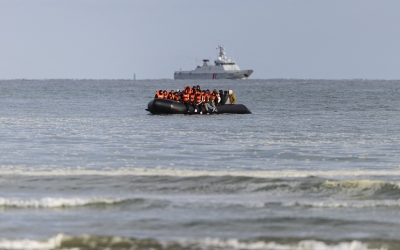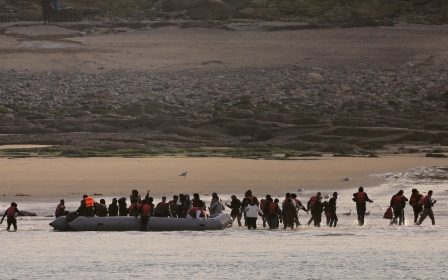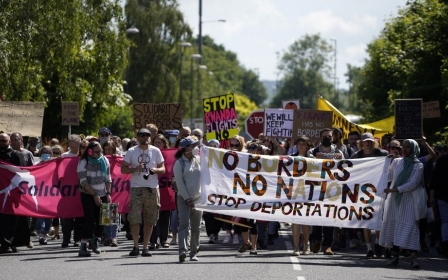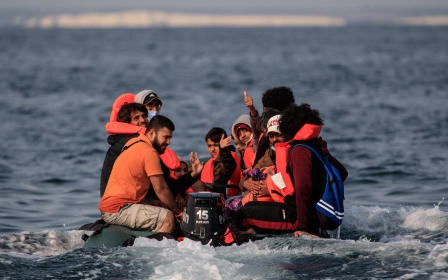Migration: How a Greek tragedy could soon unfold on British shores
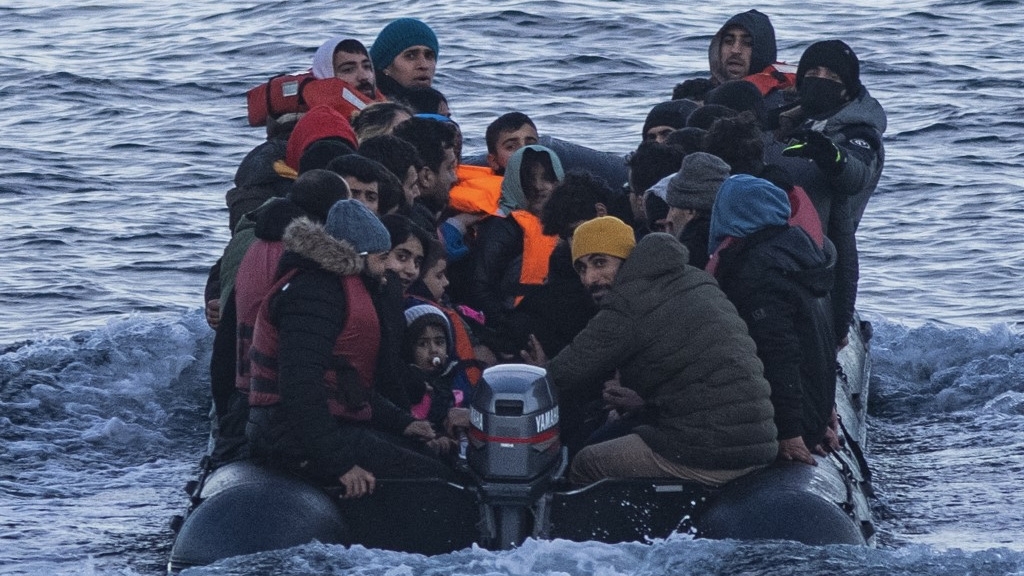
On 17 June, a BBC investigation revealed that the Greek coastguard had caused the deaths of dozens of migrants in the Mediterranean over a three-year period, with at least nine deliberately thrown into the sea.
It is beyond comprehension that the very people tasked with saving lives would commit such acts. But comprehend it we must if we are to prevent more of the same.
The actions of the Greek coastguard did not occur in isolation. They resulted from years of anti-migrant policy and rhetoric. Across Europe, we have seen a consistent increase in hateful language towards those seeking safety and a better life.
National politicians across the continent have echoed such sentiments, including the EU’s most senior diplomat, Josep Borrell.
In 2022, the European foreign policy chief repeated deeply racist, white-supremacist tropes, describing Europe as a “garden” and the “rest of the world a jungle” that would "invade" Europe.
New MEE newsletter: Jerusalem Dispatch
Sign up to get the latest insights and analysis on Israel-Palestine, alongside Turkey Unpacked and other MEE newsletters
This language, broadcast globally, reflects a mindset of European superiority, sending a clear message from the very top about how Europe views migrants: "We are civilised, they are from the jungle".
These words are dehumanising enough on their own, but they reflect the EU’s anti-migrant policy, which spends billions to kill, maim and block those who are seeking refuge in Europe.
Fortress Europe sends a stark message to anyone dreaming of a better life: do not come or you may face death.
Whipped-up mobs
But this is not just a European problem. It is a British problem, too.
If we are not careful, this Greek tragedy will become a reality on British shores. Over the past five years, we have seen an increase in anti-migrant sentiments from politicians across the UK.
Whether it is the "stop the boats" policy or the former home secretary "dreaming of flights to Rwanda", people who move have become the primary target for British politicians.
Again, this is not just language. We have seen multiple new laws and deportation schemes aimed at making the movement of people impossible.
Those who have made it to our country have been forced to live in ex-prisons, disused army barracks and barges that are unfit for purpose.
Local mobs, whipped up by the far right, have gone so far as to set asylum accommodations on fire, and others have found themselves homeless as soon as their refugee status is granted.
Last month, the Conservative Party released an anti-migration election advertisement on World Refugee Day.
The video, posted on the ruling party's official X account, began with a shot of a boat viewed through binoculars. It then showed scenes of people rolling out a red carpet to the sea, with the word "welcome" written in the sand. The video ended with the text "Labour’s approach to illegal immigration".
Captioned "Don't wake up to this on 5 July", the video referred to the day after the general election and alluded to the party's controversial promise to "stop the boats", which would see the detention and removal of irregular migrants hoping to claim asylum in Britain.
This dehumanising language and these policies seep into the minds and behaviour of those who are responsible for the frontline care of migrants, whose job and duty is to protect those in danger on our seas.
It was not long ago that the UK witnessed its worst disaster in the English Channel in 30 years when, in 2021, 27 people, including a pregnant woman and three children, drowned trying to cross.
Recent reports revealed that distress calls were "ignored" 19 times before the migrants' dinghy sank.
Politics of care
If our politicians do not stop their divisive attacks on people who move, it will not be long before we see the vicious actions of the Greek coastguard replicated by our coastguard in the Channel.
The treatment of migrants in the UK and across Europe has been devoid of humanity for many years, but we are approaching a tipping point where it becomes acceptable for rescue service operators to to go against their duty and put the lives of those they should be saving in grave danger.
This is not just dangerous for those who come here seeking sanctuary - it puts all of us on the slippery slope to fascism
This is not just dangerous for seeking sanctuary; it puts all of us on a slippery slope to fascism.
The time for a politics of care and welcome for people who move is long overdue.
People move. They always have and they always will.
Simply put, migration is a fact of life. It enriches our communities and society. Without it, we would not be who we are today.
Just as importantly, our response to migration is a barometer of our humanity.
When those tasked with saving lives are put in a position where they start taking them, it is time to take urgent action to save us all.
The views expressed in this article belong to the author and do not necessarily reflect the editorial policy of Middle East Eye.
Middle East Eye delivers independent and unrivalled coverage and analysis of the Middle East, North Africa and beyond. To learn more about republishing this content and the associated fees, please fill out this form. More about MEE can be found here.



